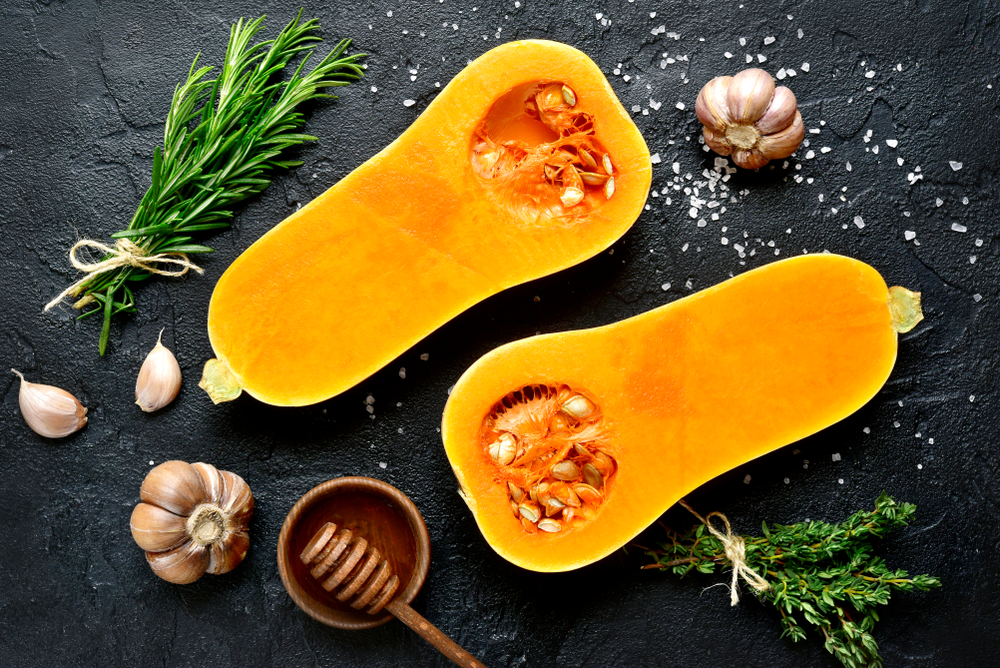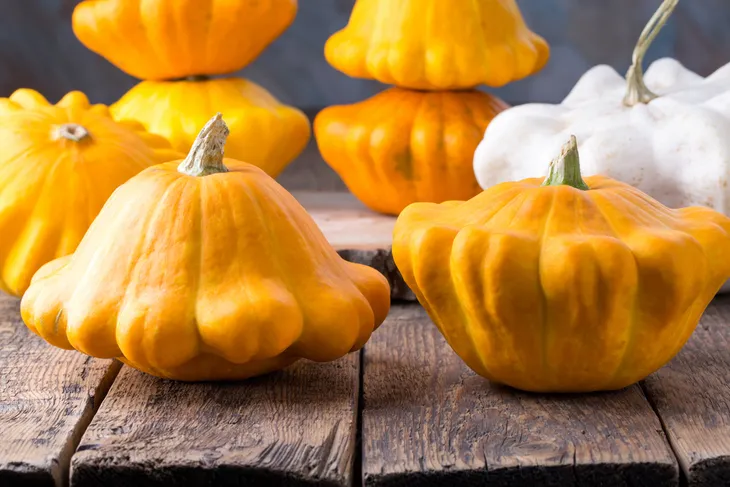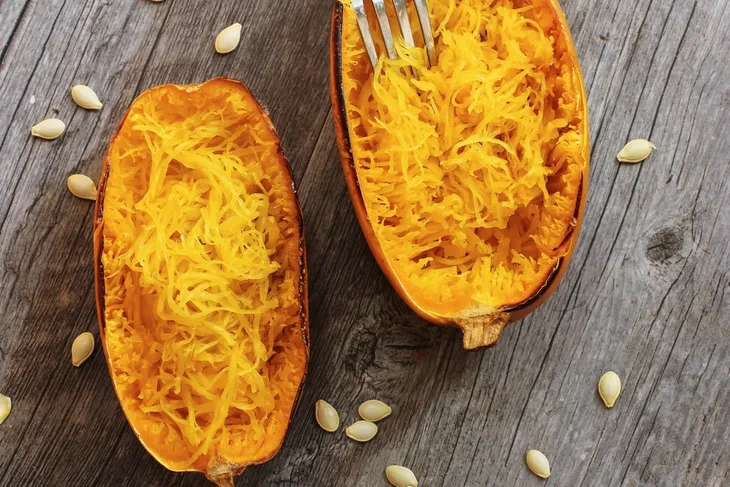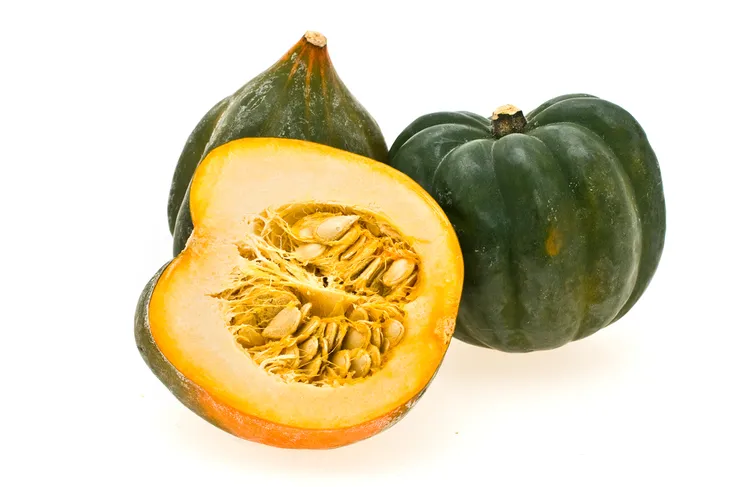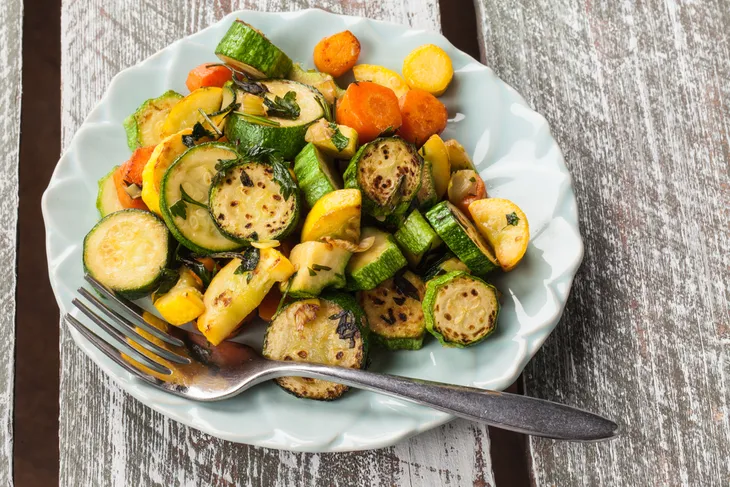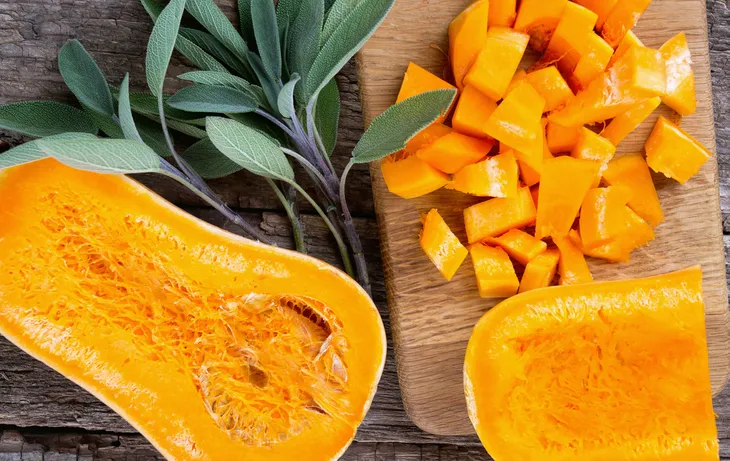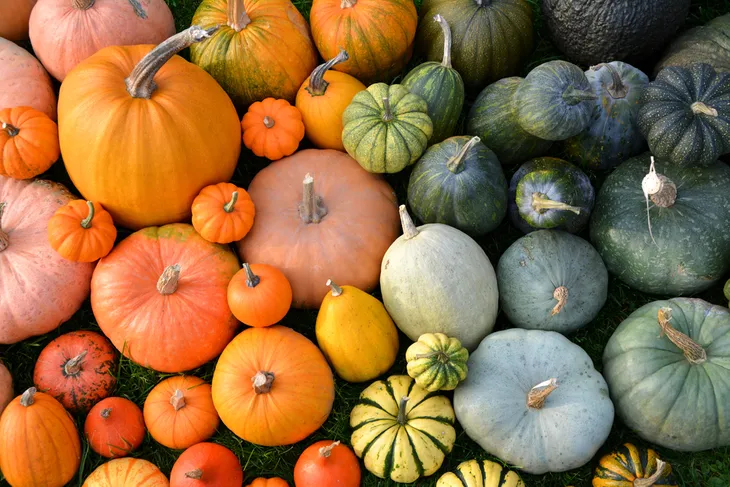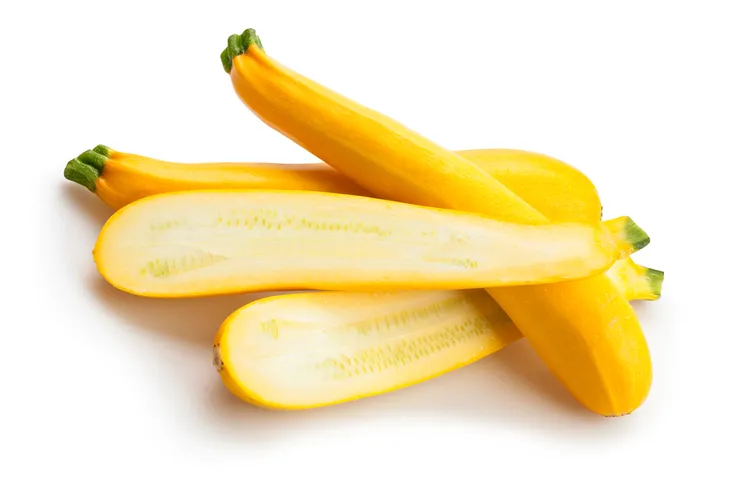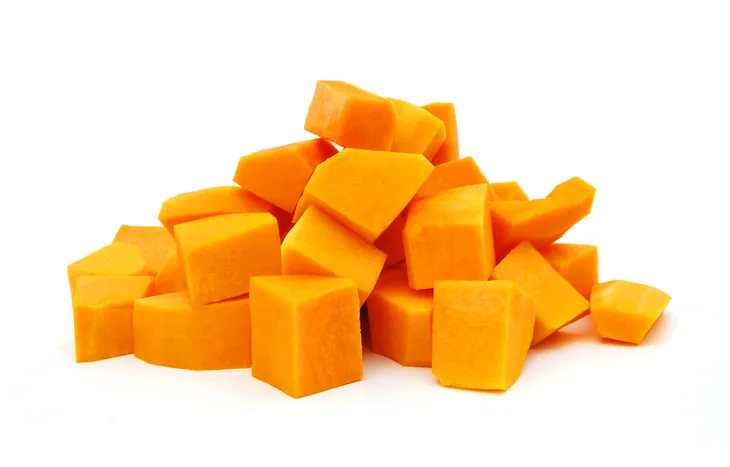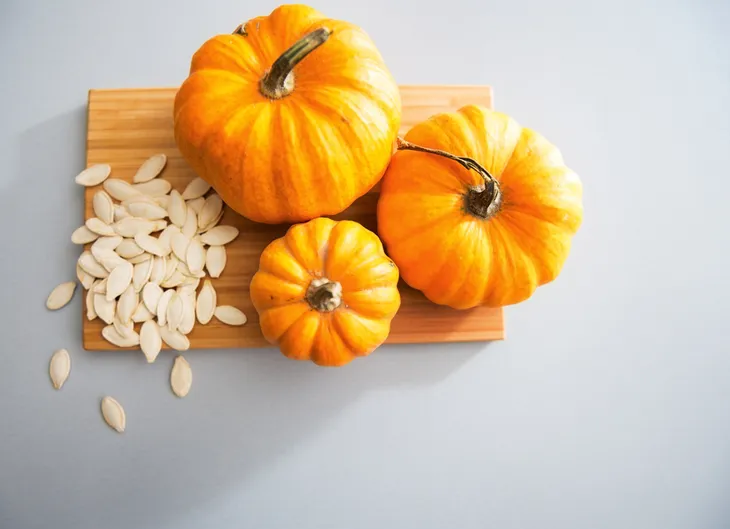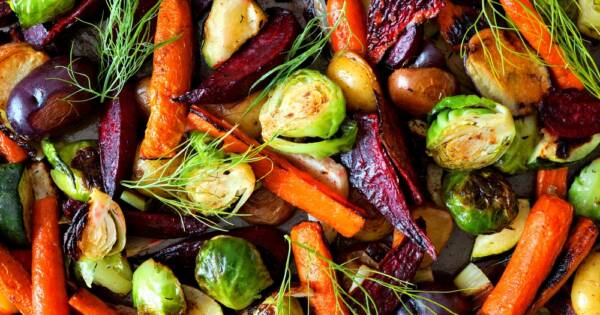Squash is probably not the first thing that comes to mind when you’re considering something that’s tasty and nutritious, but it does take a center role during holiday meals. Many may not know the best way to cook or serve squash, but after learning all of the benefits, it should be something you try to work into your diet — and not just at the holidays!
Not only is squash (which includes acorn squash, pumpkin, zucchini, butternut squash, and several others) packed with vitamins and other good stuff, it has many health benefits that might make you consider consuming it more often. Let’s take a look at 13 health benefits of eating gourds…
Want diet & nutrition content delivered straight to your inbox? Sign up for our exclusive diet & nutrition newsletter!
Squash Bad Digestion
StyleCraze explains that eating acorn squash in particular gives you a healthy dose of dietary fiber, which is important in the quest to stay “regular” – in other words, it promotes bowel movements.
This means that eating squash on the regular could “help relieve symptoms of digestion related problems,” and also help if you have ongoing digestive issues such as constipation or bloating, it adds.
Bone Up On Squash
Organic Authority says that squash, although soft and rather squishy in texture, can keep your bones solid. This is because butternut squash offers around 17-percent of your recommended daily manganese intake, it adds.
Because of this, butternut squash helps maintain “healthy bone structure,” while also aiding in calcium absorption and density of the spine, it notes. The squash also contains vitamin C, which the source explains helps produce collagen that contributes to bone mass, while minerals present (including iron and folate) help guard against osteoporosis.
See Squash in a New Way
StyleCraze says summer squash (including zucchini, pattypan, and others) is a good choice to maintain eye health. This type of squash has high levels of beta-carotene (135-mg) and lutein (2400-mcg), which are both eye friendly.
The source says lutein can help protect against eye problems such as cataracts and macular degeneration, which can cause blindness. Beta carotene, which is essentially vitamin A, is important for eye health.
Eat Squash For Immunity
The vitamin C that can help bone health can also give your immunity a boost – so there is some truth that consuming C can ward off colds. It can also help fight allergies, explains StyleCraze.
The fiber content we mentioned may also help prevent certain diseases, but the fiber is often contained in the rind of certain squash varieties – so the source suggests eating the rind too for the full benefits.
Squash Cancer Cells
Best Health explains that pumpkin and winter squash (acorn, butternut, Hubbard, and others) can actually prevent cancer cell growth.
The source cites studies out of the Cancer Research Center of Hawaii that show the beta-carotene contained in certain varieties of squash can “turn on a gene” that allows healthy cells to send “growth-inhibiting signals” to abnormal cells, therefore limiting the growth of cancerous cells.
Prevent Cancer In The First Place
Of course, the better scenario is to have no cancer cells at all which can multiply. StyleCraze says summer squash is rich in antioxidants, which have been shown to eliminate free radicals in the body that are linked to cancer.
Vitamin C is also a cancer-fighting agent, and inhibits cell division, and the vitamin A content can guard against cancers of the lungs and the oral cavity, adds the source.
It’s Gourd For Weight Loss
Organic Authority says consuming squash can be helpful as part of a healthy diet that regulates weight. This source says delicious butternut squash has less than 100-calories and almost no fat in a 1-cup serving – “it goes without saying that butternut squash is the cheese to your diet’s macaroni,” it adds.
The high fiber content makes you feel fuller for longer, which can help you from overeating or unhealthy snacking. “Add this nutrition-packed food to a larger portion of your meals, and your weight scale won’t even know you’re standing on it,” the source says (with tongue planted somewhat in cheek).
Gives You Energy
Dr. Axe says a variety of squash, called Cucurbita moschata (which includes butternut squash as a cultivar), has been shown through research to decrease fatigue and improve physical performance of mice.
The source also notes that vitamin C is also positive for energy levels, as it helps your body absorb more of the oxygen you breathe (particularly in conjunction with physical exertion.) Vitamin C can also help prevent upper respiratory infections that are common following prolonged physical exertion, such as a marathon, it adds.
Fights PMS Symptoms
Here’s one for the ladies – eating summer squash can make PMS symptoms less severe, at least according to StyleCraze. This is because of the manganese content, it adds.
The source cites a study that shows women who consume high levels of manganese as part of their diet “suffered from lesser mood swings and cramps than others.” That’s reason enough right there to bulk up on squash.
Set Your Heart on Squash
StyleCraze also says eating squash – yellow squash in particular – can reduce the risk of heart disease, as it contains little fat and nearly zero cholesterol. It also contains magnesium, which the source says is linked to lower risk of heart attacks and strokes.
What’s more is that the vitamin C and beta-carotene content aid in prevention of oxidized cholesterol buildup in the walls of the blood vessels, which can lead to atherosclerosis (a condition that causes narrowing of arteries from plaque), it adds.
Take Some Pressure Off
Magnesium and potassium are also shown to reduce blood pressure, which takes some workload off your heart, and the folate found in yellow squash helps in ridding your body of homocysteine (a byproduct of metabolism) that has been linked to heart attack and stroke.
Organic Authority also notes 1-cup of butternut squash happens to contain 500-mg of potassium, which reduces blood pressure by counteracting the effects of dietary sodium.
An Alternative Source of Protein
When you’re looking for a protein fix, you might be thinking of a juicy steak. However, red meat has been linked to a possibly higher cancer risk (when eaten in excess), so considering other sources of protein is not a bad idea.
Best Health says that baked pumpkin seeds are a rather unlikely source of bountiful protein, and that 1-ounce of the seeds has 7-grams of protein, as well as 4-mg of iron. However, pumpkin seeds are a bit high in calories (148-per ounce), so watch your serving sizes, it adds.
Benefits are Skin Deep
Butternut squash has a smooth skin under its tough exterior, and don’t you want the same qualities for yourself? Organic Authority says this type of squash can actually protect your skin thanks to its high levels of vitamin C.
The source cites research published in the American Journal of Clinical Nutrition that concluded higher consumption of vitamin C was “linked to a lower likelihood of wrinkles and dryness” in the more than 4,000-women (aged 4o to 74) considered in the study.
